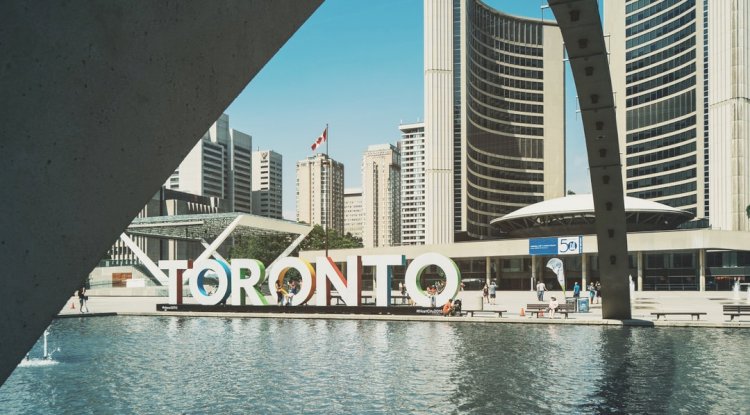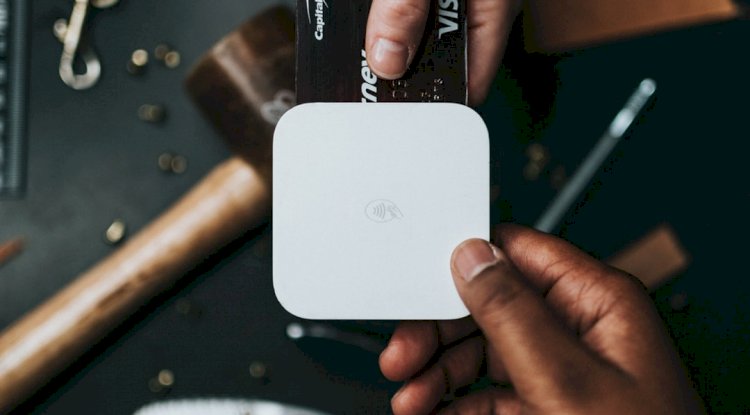African Countries Still Pay Over $500 Billion as Colonial Tax to France Yearly
When Sekou Toure of Guinea Conakry triggered the abandonment of France (Independence), the French government ordered home three thousand Frenchmen from the country. They were asked to take with them, all their possessions and everything that was under French control in the country and destroying all that could not be moved.

Among the things that were destroyed across the country were schools, nurseries, buildings of public administrations, important national records and plans, cars, books, and medicines,
The gigantic destruction covered also, instruments of research institutes, tractors for agriculture, roads; horses, cows on farms were killed, and stored foods were burned or poisoned.
In solidarity, and as a concern for this this horrible act against the people of Guinea, the President of Ghana at the time, Osagyefo Dr. Kwame Nkrumah had to offer £10 million of Ghana’s economic reserve to support Guinea in order that the country can survive this turmoil!
The aim of this scandalous act was to send a clear message to all the other colonies about the consequences of France’s rejection.
The fact is that little by little, the fear seized the African elites, and after these events no other country ever found the courage to follow the example of Sékou Touré, whose slogan was “We prefer freedom in poverty to opulence in slavery “.
For any newly independent country thereafter, it was necessary to find compromises with France.
Sylvanus Olympio, the first president of the Republic of Togo, a small country in West Africa, found a solution likely to calm the French:
Not wanting to continue to undergo French domination, he refused to sign the colonial pact proposed by De Gaule, but agreed in return to pay an annual debt to France for the so-called benefits obtained during the French colonization.
This was the only condition for France not to destroy the country before leaving. However, the amount estimated by France was so large that the reimbursement of the so-called “colonial debt” was close to 40% of the country’s budget in 1963.
Senior tax collectors sitting close to the tax users
Consequently, the financial situation of just independent Togo was very unstable, and in order to get out of this situation, Olympio decided to leave the monetary system set up by colonial France the FCFA (franc of the French colonies of Africa), and created the currency of the country.
On January 13, 1963, three days after he began printing the new bills, a squad of soldiers (supported by France) seized and killed the first elected president of independent Africa: Olympio was executed by an ex French legionnaire, the sergeant of the army Etienne Gnassingbe who, at the same time, received a bonus of 612 dollars from the local French embassy for the success of his mission.
Olympio’s dream was to build an independent and autonomous country. But the idea did not correspond to the French wishes.
On June 30, 1962, Modibo Keita, the first president of the Republic of Mali, also decided to withdraw from the CFAF monetary system (imposed on 12 newly independent African countries).
Indeed, for the Malian president, who leaned more towards a socialist economy, it was clear that the colonization that was lasting with this pact with France, became a trap, a burden for the development of the country.
On November 19, 1968, like Olympio, Keita will be the victim of a coup led by another former French legionary of foreign affairs, Lieutenant Moussa Traoré.
In fact, during this turbulent period when Africa was struggling to free itself from the yoke of European colonization, France will repeatedly use mercenaries formerly affiliated with the foreign legion to carry out fist operations against the newly elected presidents:
On 1 January 1966, Jean-Bedel Bokassa, a former French legionnaire, waged a coup against David Dacko, the first president of the Central African Republic.
On January 3, 1966, Maurice Yaméogo, the first president of the Republic of Upper Volta, today called Burkina Faso, was the victim of a blow by Aboubacar Sangoulé Lamizana, a former French legionnaire who fought with French troops in Indonesia and Algeria against these countries independence.
On 26 October 1972 Mathieu Kérékou, who was a security guard to President Hubert Maga, the first president of the Republic of Benin, carried out a coup against the president, after having attended the French military schools from 1968 to 1970.
In fact, over the last 50 years, a total of 67 coups have occurred in 26 countries in Africa, 16 of which are former French colonies, which means that 61% of coups d’etat in Africa were initiated in former French colonies.
In March 2008, former French President Jacques Chirac said:
“Without Africa, France will slide down into the rank of twenty-third power [of the world]”
The predecessor of Jacques Chirac François Mitterrand had already prophesized in 1957 that: “Without Africa, France will have no history in the 21st century”
At the very moment when I am writing this article, 14 African countries are obliged by France, through the colonial pact, to put 85% of their reserves in the central bank of France under the control of the French Ministry of Finance. So far, in 2014, Togo and about 13 other African countries still have to pay the colonial debt to France. African leaders who refuse are killed or victims of coup d’etat. Those who obey are supported and rewarded by France with a sumptuous lifestyle, while their populations endure misery and despair.
Such an evil system is denounced by the European Union, but France is not ready to do without this colonial system which offers it a cash of about 500 billion dollars from Africa each and every year.
We often accuse African leaders of corruption and serving the interests of Western nations, but there is a clear explanation for this behavior.
They behave this way because they are afraid of being killed or being the victim of a coup. They want to ally themselves with a powerful nation to save themselves in case of aggression or difficulties.
However, unlike friendly protection, the protection of the West is often offered in exchange for giving up serving their own people or the interests of nations.
African leaders would work in the interest of their people if they were not constantly harassed and intimidated by the colonial countries.
In 1958, scared of the consequences of his choice of independence from France, Léopold Sédar Senghor said: “The choice of the Senegalese people is independence, they want it to take place only in friendship with France. France, not in dispute. ”
France has therefore accepted an “independence on paper” for its colonies, but has signed in parallel “cooperation agreements”, specifying the nature of their relations with France, especially the ties to the currency (the Franc), the French education system, military agreements and trade preferences.
Here are the 11 main components of the continuation of the colonization pact since the 1950s:
1. The colonial debt for the benefits of French colonization
The newly “independent” countries have to pay for the infrastructure built by France in the country during colonization.
I still have to find the details on the amounts, the assessment of colonial benefits and the payment terms imposed on African countries, but we are working on it (helping us with information).
2. Automatic confiscation of national reserves
African countries must deposit their national currency reserves in France at the central bank.
France has held national reserves of fourteen African countries since 1961: Benin, Burkina Faso, Guinea-Bissau, Ivory Coast, Mali, Niger, Senegal, Togo, Cameroon, Central African Republic, Chad, Congo-Brazzaville, Guinea Equatorial Republic and Gabon.
The monetary policy governing such a diversified grouping of countries is simple because it is managed by the French Treasury, without referring to central tax authorities such as UEMOA or CEMAC. Under the terms of the agreement put in place by the central bank of the CFA, each Central Bank of each African country is obliged to keep at least 65% of its foreign exchange reserves in an “account of operations” held in the country. French Treasury, and another 20% to cover financial liabilities.
CFA central banks also impose a ceiling on credit granted to each member country at the equivalent of 20% of the country’s public revenue over the previous year. Even if the BEAC and the BCEAO have an overdraft facility with the French Treasury, overdraft facilities are subject to the consent of the French Treasury. The last word is that of the French Treasury which has invested foreign reserves of African countries in its own name on the Paris Stock Exchange.
In short, more than 80% of the foreign exchange reserves of these African countries are deposited in the “accounts of operations” controlled by the French Treasury. The two CFA banks are African by name, but do not have their own monetary policy. The countries themselves do not know, are not informed, up to how much the foreign exchange reserve held by the French Treasury belongs to them as a group or individually.
The gains from the investment of these French Treasury funds are supposed to be added to the foreign exchange reserve, but there is no accounting transmitted to banks or countries, nor the details of these changes. “Only a small group of senior French Treasury officials know the amounts in the” trading accounts “where these funds are invested; if there is a profit on these investments, they are prohibited from disclosing this information to the CFA banks or the central banks of the African states. “Writes Dr. Gary K. Busch
It is estimated that France manages nearly 500 billion African silver in its cash, and does nothing to shed some light on this dark side of the old empire.
The purpose remains: African countries do not have access to this money.
France allows them access to only 15% of their money a year. If they need more, African countries must borrow, at commercial rates, the 65% of their money held in the French Treasury.
To make things more tragic, France imposes a ceiling on the amount of money that countries can borrow from the reserve. The ceiling is set at 20% of their public revenue from the previous year. If countries need to borrow more than 20% of their own money, France has a veto.
Former French President Jacques Chirac recently spoke about African countries’ money in banks in France. Here is a video that talks about the French operating system.
3. Right of priority over any natural or raw resource discovered in the country
France has priority in the purchase of all the natural resources of the land of its former colonies. It is only in case of refusal that African countries are allowed to seek other partners.
4. Priority to French interests and companies in public contracts and public buildings
In awarding public contracts, French companies must be considered in the first place, and only after the foreign markets are considered. The fact that African countries could obtain a better financial offer elsewhere is not taken into account.
As a result, in most ex-French colonies, all the largest companies and economic players are in the hands of French expatriates. In Côte d’Ivoire, for example, French companies own and control all the major public services – water, electricity, telephone, transport, ports and the big banks. Ditto in trade, construction and agriculture.
In the end, as I wrote in a previous article, Africans now live on a continent owned by Europeans!
5. Exclusive right to provide military equipment and train military officers of the countries
Thanks to a sophisticated system of scholarships, grants, and the “defense agreements” attached to the colonial pact, Africans must send their senior training officers to France or to French military infrastructures.
The situation on the continent is such that France has trained and fed hundreds, even thousands of traitors. They are dormant as long as they are not needed, and activated when needed for a coup d’etat or for other purposes!
6. Right for France to pre-deploy troops and intervene militarily in the country to defend its interests
Under the name “Defense Agreements” attached to the colonial pact. France has the right to intervene militarily in African countries, and also to station troops permanently in military bases and installations, entirely managed by the French.
French military bases in Africa
When President Laurent Gbagbo of Côte d’Ivoire attempted to end the French exploitation of the country, France organized a coup d’etat. During the long process of driving Gbagbo out of power, French tanks, combat helicopters and special forces directly intervened in the conflict, shot civilians and killed many of them.
To add insult to insult, France estimates that the French business community lost several million dollars during the rush to leave Abidjan in 2006 (where the French army massacred 65 unarmed civilians and wounded 1200 others.)
After the success of the coup by France, and the transfer of power to Alassane Ouattara, France asked the Ouattara government to pay compensation to the French business community for losses during the civil war.
In fact, the Ouattara government paid them twice what they said they lost when they left.
7. Obligation to make French the official language of the country and the language for education
Yes sir. You must speak French, the language of Molière! The French language and an organization of the diffusion of the culture was created. Called “Francophonie” which gathers with several branches and affiliated organizations all controlled by the French Minister of Foreign Affairs.
As demonstrated in this article, if French is the only language you speak, you would have access to less than 4% of the knowledge of humanity and ideas. It’s very limiting.
8. Obligation to use the money of colonial France the FCFA
This is the real cash cow for France, such an evil system, is denounced by the European Union, but France is not ready to do without this colonial system that offers him a cash of about 500 billion dollars from Africa, by year.
During the introduction of the euro currency in Europe, other European countries have discovered the French operating system. Many, especially the Nordic countries, were appalled and suggested France to get rid of the system, but without success.
9. Obligation to send the annual balance and reserve report to France
Without the report, no money. Be that as it may, the secretariat of the ex-colonies’ central banks, and the secretariat of the bi-annual meeting of finance ministers of the ex-colonies are insured by France’s central bank / Treasury.
10. Renunciation to enter a military alliance with any other country, unless authorized by France
African countries in general are those with the fewest inter-state military alliances. Most countries only have military alliances with their ex-colonizers! (funny, but you can not do better!).
In cases where they wish another alliance, France keeps them well to do so.
11. Obligation to ally with France in a situation of war or global crisis
More than a million African soldiers fought for the defeat of Nazism and fascism during the Second World War.
Their contribution is often ignored or understated, but when you think that it took only 6 weeks for Germany to defeat France in 1940, France knows that Africans could be useful to keep the “Greatness of France” at home. ‘to come up.
There is something almost psychopathic about France’s relationship with Africa.
First of all, France is seriously addicted to the looting and exploitation of Africa since the time of slavery. Then there is the complete lack of creativity and imagination of the French elite to think beyond the past and the tradition.
Finally, France has two institutions that are completely frozen in the past, inhabited by paranoid and psychopathic “senior officials” who spread the fear of the apocalypse if France was to be changed, and whose ideological reference comes still romanticism of the 19th century. They are: the Minister of Finance and the Budget of France and the Minister of Foreign Affairs of France.
These two institutions are not only a threat to Africa, but to the French themselves.
It is up to us to liberate Africa, without asking permission, because I still can not understand for example how 450 French soldiers in Côte d’Ivoire could control a population of 20 million people?
The first reaction of people when they learn about the existence of French colonial tax is often a question: “Until when?”
As a historical comparison, France charged Haiti the modern equivalent of $ 21 billion from 1804 to 1947 (nearly a century and a half) for the losses caused to French slave traders following the abolition slavery and the liberation of Haitian slaves.
African countries have been paying the colonial tax for the last 50 years! How long do Africans have to wait to put an end to this great organized theft and slavery organized for several centuries?
Sincerely, nothing can be done by the African politician to change the situation until we the masses stop blaming our leaders and join in to fight the bigger monster who is our common enemy.
Source: The Peoples News Africa
What's Your Reaction?
























